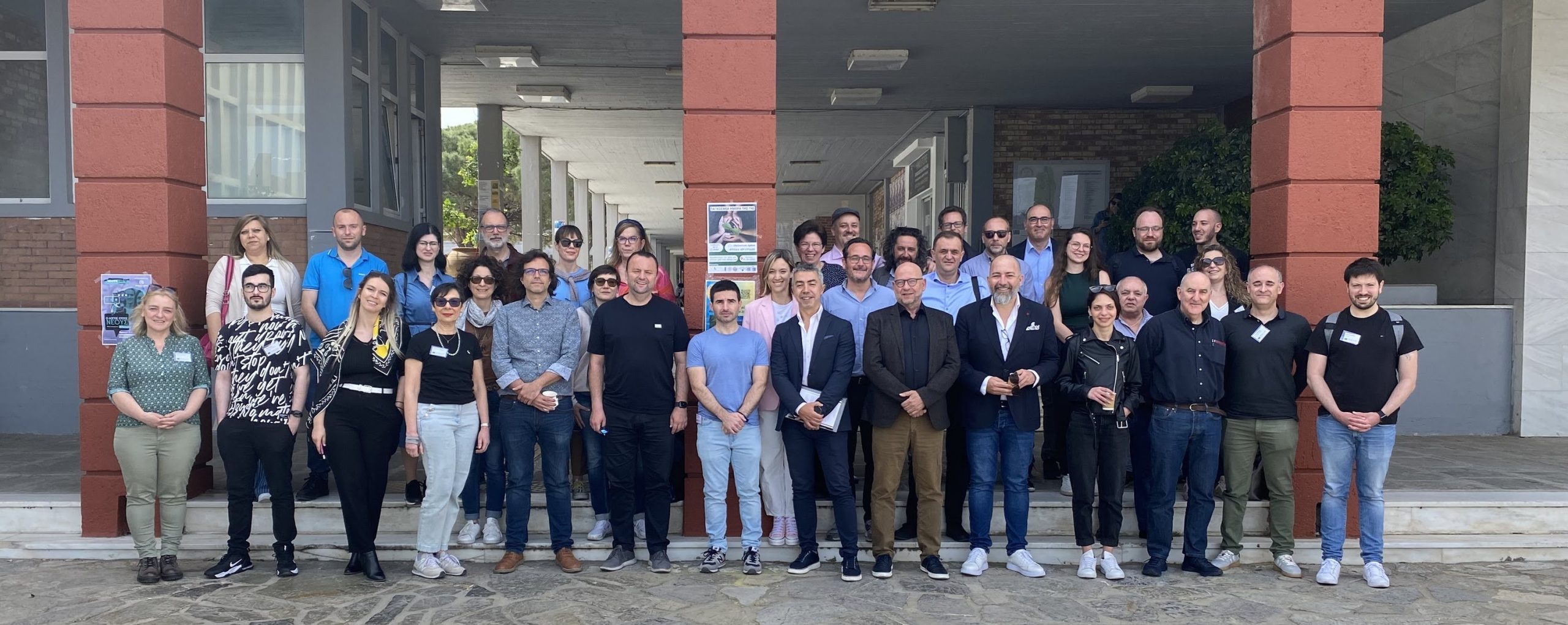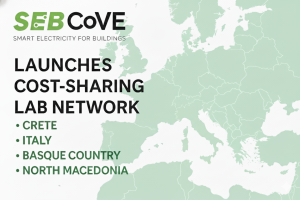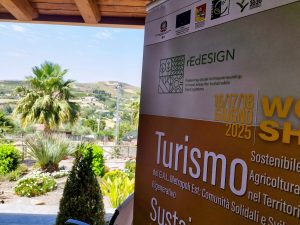

The SEBCoVE project was initiated with a Kick-Off Meeting held in Heraklion, Greece.
The Hellenic Mediterranean University (HMU), together with the European Center in Training for Employment (ECTE), organized the first meeting of the Smart Electricity for Buildings—Centers of Vocational Excellence (SEBCoVE) project. This two-day event inaugurated an ambitious effort to improve vocational education and training (VET) throughout Europe and create be world-class reference points for up- and reskilling of professionals engaged in the Smart Electricity for Buildings (SEBs) sector.
The SEBCoVE project (101144027), aims to create a network of vocational excellence centers focusing on the smart electricity industry. The kick-off meeting convened delegates from 21 partner organizations to deliberate on project management, strategic research, design, development, execution, quality assurance, and dissemination plans.
Day 1: Establishing the Basis
The opening day commenced with a warm reception by Professor E. Karapidakis at 9:00 AM, followed by a series of introductions among all collaborators. This session established a conducive environment for collaboration throughout the meeting.
Highlighted Sessions and Presentations:
Summary of the Project: Delivered by K. Androulakis from ECTE, this presentation offered a comprehensive perspective on the project’s aims and objectives.
Work Package 1 (WP1): The presentation, led by E. Karapidakis and M. Markaki from HMU, focused on project management and coordination. It addressed important areas such as administrative and financial management, risk management, and quality assurance.
Work Package 2, also referred to as WP2: Bruno Canizes from IPP presented strategic study findings, which included stakeholder mapping, state-of-the-art skill requirements in the electrical sector, and identified competency gaps.
Subsequent to it, a sequence of thorough conversations ensued, with a specific emphasis on:
The SEBCoVE Design (WP3) presented by K. Androulakis from ECTE, focused on many topics, such as the development of knowledge triangles, the participation of stakeholders, the implementation of novel teaching approaches, and the formulation of internationalization strategies.
During the SEBCoVE Development (WP4) meeting, the discussion focused on the involvement of HMU in creating professional profiles and designing curricula. Matheus Kakaris from Atermon presented on the development of digital tools and the use of new teaching methods.
The implementation of this component, coordinated by Mrs. Luisa Previati from ENAIP, focused on the practical aspects of training, certification, and the creation of skills ecosystems.
The day ended with a workshop on quality assurance (WP6) Mrs. Vardalachou from TUV Austria Hellas. The discussion focused on VET quality certification and the establishment of quality management procedures.
Day 2: Progressing
The second day of the event was dedicated to the topics of monitoring, follow-up, and distribution plans.
Notable features:
Work Package 7 (WP7): Mr. Jesus Rosel from MLAKoop, facilitated the discussion on evaluation strategies, activity monitoring, internal audits, curriculum evaluation, and effect assessment.
During Work Package 8 (WP8), Ana María García Gascó from CONAIF discussed the tactics for disseminating, exploiting, and communicating the project. This included the creation of the project’s website and branding toolkit.
A substantial chunk of the day was allocated to strategizing upcoming events, meetings, and mobility initiatives. The discussions focused on determining the subsequent actions and ensuring ongoing communication and collaboration between parties.
The meeting concluded with a concise overview of the deliberations and consensus reached regarding the subsequent actions to be taken. Each participant demonstrated their dedication to the project’s goals and voiced anticipation for further meetings and joint endeavors.
The kick-off conference in Heraklion for the SEBCoVE project established a strong basis for a groundbreaking initiative focused on promoting vocational education and training in the smart electricity industry. This initiative is expected to make substantial contributions to the field and improve skills development throughout Europe.


101144027


